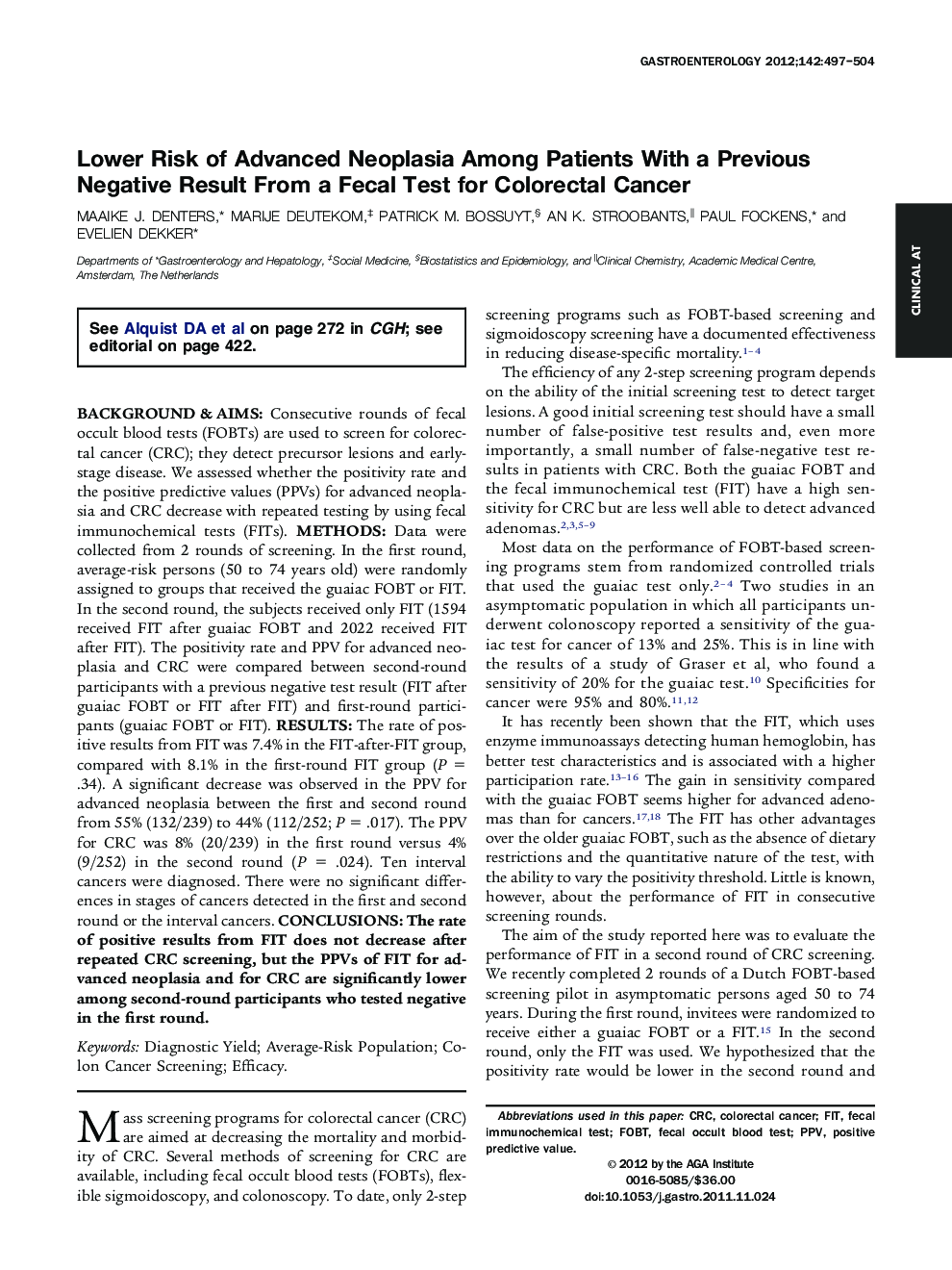| Article ID | Journal | Published Year | Pages | File Type |
|---|---|---|---|---|
| 3293319 | Gastroenterology | 2012 | 8 Pages |
Background & AimsConsecutive rounds of fecal occult blood tests (FOBTs) are used to screen for colorectal cancer (CRC); they detect precursor lesions and early-stage disease. We assessed whether the positivity rate and the positive predictive values (PPVs) for advanced neoplasia and CRC decrease with repeated testing by using fecal immunochemical tests (FITs).MethodsData were collected from 2 rounds of screening. In the first round, average-risk persons (50 to 74 years old) were randomly assigned to groups that received the guaiac FOBT or FIT. In the second round, the subjects received only FIT (1594 received FIT after guaiac FOBT and 2022 received FIT after FIT). The positivity rate and PPV for advanced neoplasia and CRC were compared between second-round participants with a previous negative test result (FIT after guaiac FOBT or FIT after FIT) and first-round participants (guaiac FOBT or FIT).ResultsThe rate of positive results from FIT was 7.4% in the FIT-after-FIT group, compared with 8.1% in the first-round FIT group (P = .34). A significant decrease was observed in the PPV for advanced neoplasia between the first and second round from 55% (132/239) to 44% (112/252; P = .017). The PPV for CRC was 8% (20/239) in the first round versus 4% (9/252) in the second round (P = .024). Ten interval cancers were diagnosed. There were no significant differences in stages of cancers detected in the first and second round or the interval cancers.ConclusionsThe rate of positive results from FIT does not decrease after repeated CRC screening, but the PPVs of FIT for advanced neoplasia and for CRC are significantly lower among second-round participants who tested negative in the first round.
